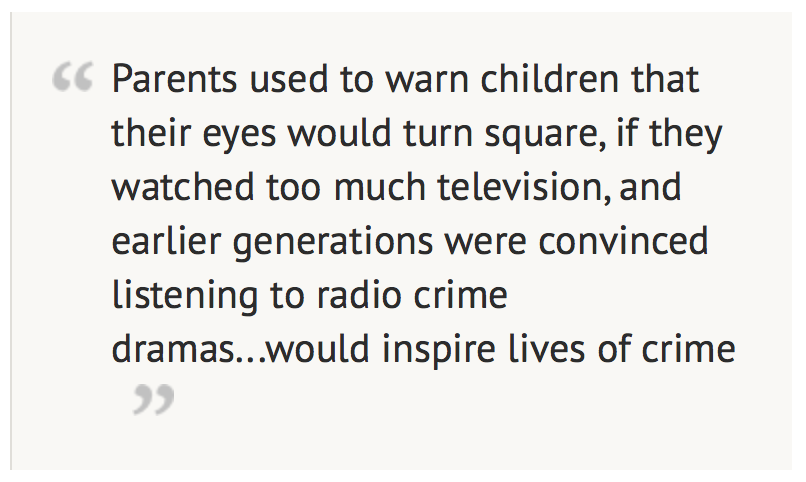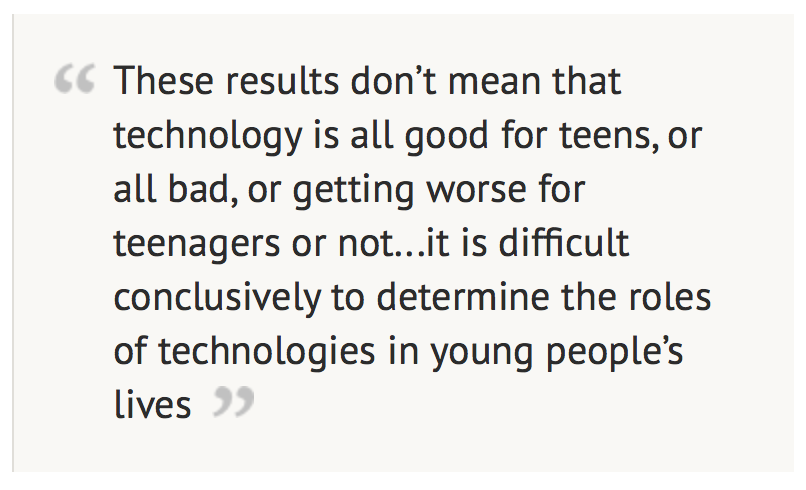Release time: 2021-05-10 13:57

Relief for parents? No hard evidence of link between tech and teenage mental health
Parents will worry, that is what parents do. But, according to Oxford Internet Institute researcher, Dr Matti Vuorre, the evidence base suggesting a negative impact of the use of technology on teenagers’ mental health is thin - at best.
Dr Vuorre and colleagues Dr Amy Orben and Professor Andy Przybylski have been studying the associations between technology use and adolescent mental health – and, according to new research, it is not all bad news, not at all.
It is popularly believed that new technology, particularly social media, is responsible for declining mental health among young people and a range of other social ills. But, says Dr Vuorre, concerns of this type are not new, nor are they well justified by current data.
Parents used to warn children that their eyes would turn square, if they watched too much television, and earlier generations were convinced that listening to radio crime dramas, such as Dick Tracy (special agent) would inspire young people to turn to lives of crime. 
Then, as now, says Dr Vuorre, the popular idea does not appear to be supported by hard evidence. The research, published last night, used data from three large surveys to look into the lives of more than 400,000 young people in the UK and US.
In these surveys, young people report on their personal use of technology and various mental health-related issues. Using this large data set, the team of researchers set about investigating the associations between adolescents’ technology use and mental health problems, and whether they have increased over time.
According to Dr Vuorre, these survey responses do not establish a smoking gun link between the use of technology and mental health issues, nor do they show that technologies have become more harmful over time.
‘We did find some limited associations between social media use and emotional problems, for instance,’ he says. ‘But it is hard to know why they are associated. It could be a number of factors [perhaps people with problems spend more time on social media seeking peer support?]. Furthermore, there was very little evidence to suggest those associations have increased over time.’
In fact, according to the new research, ‘Technology engagement had become less strongly associated with depression in the past decade, but social-media use had become more strongly associated with emotional problems.’
The study concludes, ‘The argument that fast-paced changes to social media platforms and devices have made them more harmful for adolescent mental health in the past decade is, therefore, not strongly supported by current data either.’
‘These results don’t mean that technology is all good for teens, or all bad, or getting worse for teenagers or not. Even with some of the larger data sets available to scientists, it is difficult conclusively to determine the roles of technologies in young people’s lives, and how their impacts might change over time.’
Dr Vuorre says. ‘Scientists are working hard on these questions, but their work is made more difficult by the fact that most of the data collected on online behaviours remains hidden in technology companies’ data warehouses.’
He adds, ‘We need more transparent research collaborations between independent researchers and technology companies. Before we do, we are generally in the dark.’